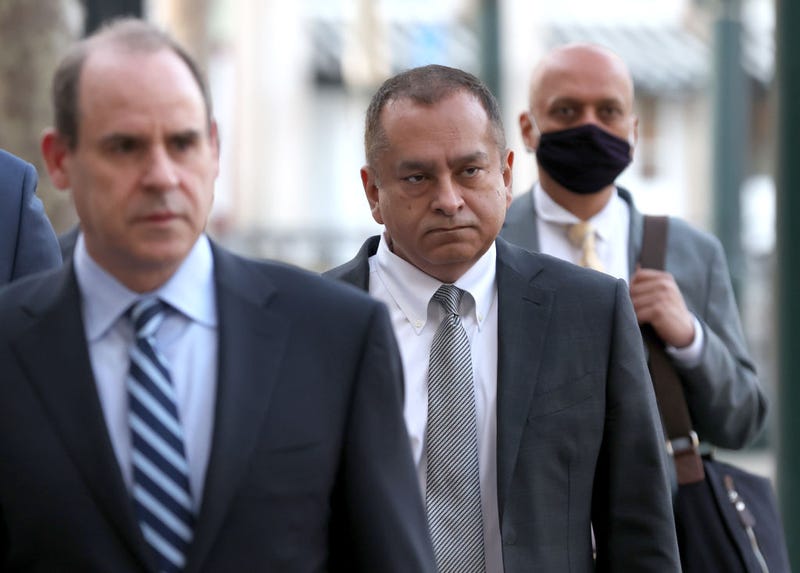
SAN FRANCISCO (KCBS RADIO) – Former Theranos executive Ramesh "Sunny" Balwani has been found guilty of 12 counts of conspiracy and fraud after he was convicted by a federal jury in San Jose on Thursday, which determined he co-conspired with the failed blood testing company's disgraced CEO Elizabeth Holmes to defraud investors and patients.
For more, stream KCBS Radio now.
Thursday's outcome is the latest chapter in a highly publicized legal saga which started in 2018 when Balwani and Holmes were indicted by a federal grand jury following a two year investigation into their company’s alleged multi-million dollar fraud scheme centered on false claims surrounding their supposedly revolutionary blood tests.
A jury of five men and seven women, after 32 hours of deliberation, convicted Balwani, 57 and former Chief Operating Officer of Theranos, of all 10 counts of wire fraud and two counts of conspiracy to commit wire fraud.
The result is more severe than Holmes' trial in January, when she was convicted of four fraud counts and acquitted of four. Three other charges were dismissed because the jury could not come to a decision.
Balwani, like Holmes, faces a maximum of 20 years in prison. Holmes' sentencing is scheduled for September, while Balwani's will be set in the coming days.
Balwani and Holmes, along with being business partners, were also involved in a romantic relationship with each other during part of Theranos' existence. Holmes has since accused Balwani of sexually emotionally abusing her while they were together. Balwani's attorney has vehemently denied those claims.
"This was a trial that was really under the radar. Look at how much attention the Elizabeth Holmes trial got and how much we were looking at the play-by-play. This was occurring with very little fanfare," Margaret O’Mara, historian of the tech industry and professor at the University of Washington, told KCBS Radio. "I think that tells a couple of things: one is the fascination with Holmes herself as the face of Theranos. But also it's really interesting the CEO, Holmes, was only convicted of a few crimes while the CEO, Balwani, was seen by this jury of having been culpable for all of these things, including harm to patients, which is a big contrast."
"In a Silicon Valley culture, where the founder and CEO is the face and is often seen as the singular face and the decider, it's really interesting that the operator, Balwani, is the one that is convicted of more things," she said.
Holmes has appealed her verdict, and Balwani is expected to do the same. Steve Meister, a Los Angeles based defense attorney and criminal prosecutor, said he doubts that the outcome will change.
"It's a very, very, very high bar to have to reach and I don’t think that (Balwani’s defense team) will be able to here," he told KCBS Radio. "There’s decades of case law that would say 'yeah, if there's a glaring error that’s made a difference, we're going to overturn a conviction.' But it's rare that that threshold is actually reached."
Meister added that he doesn't expect Balwani’s sentencing trial to occur until 2023, because both the federal government and the defense will want to see what happens in Holmes' sentencing first.
DOWNLOAD the Audacy App
SIGN UP and follow KCBS Radio
Facebook | Twitter | Instagram

